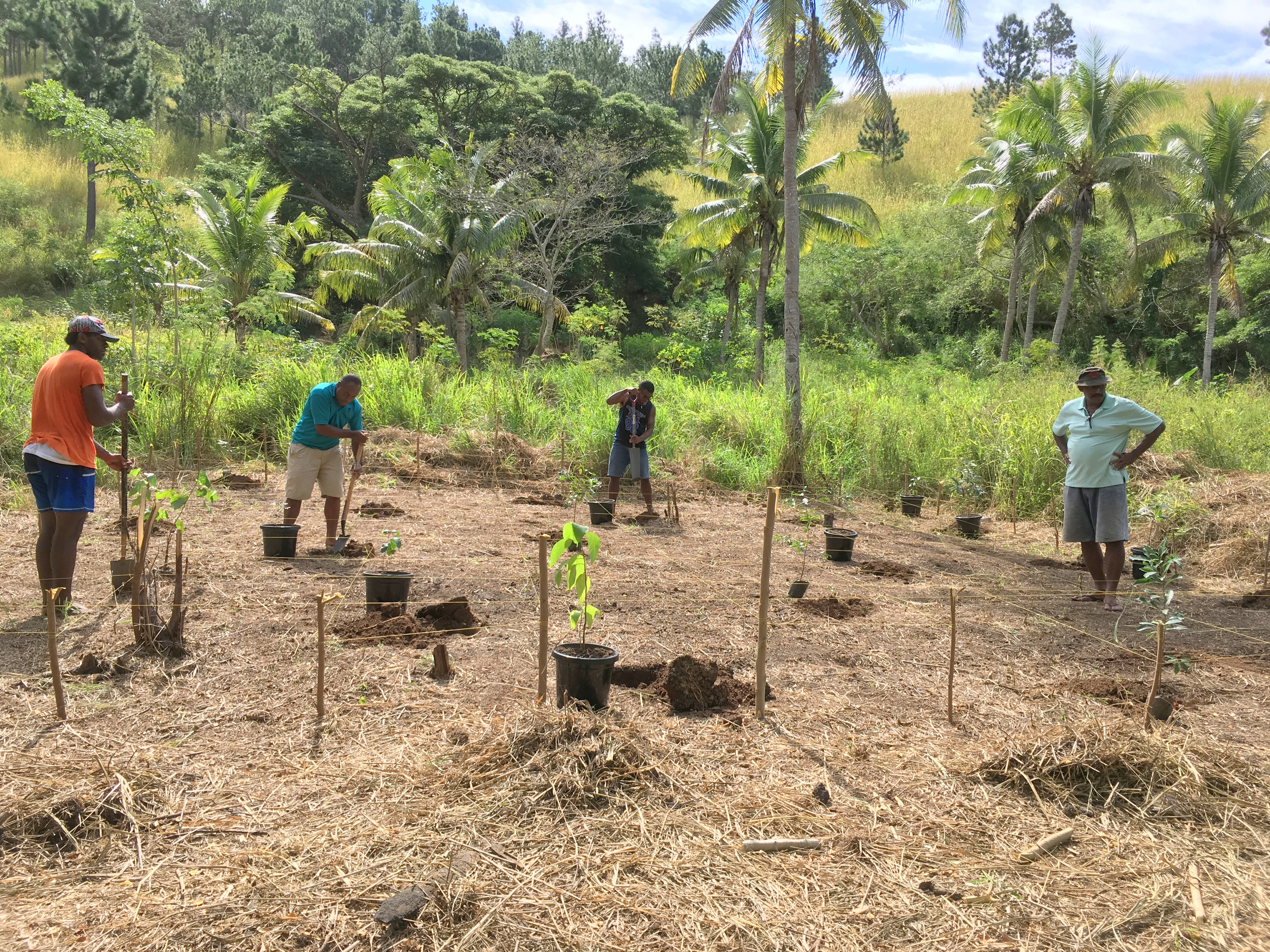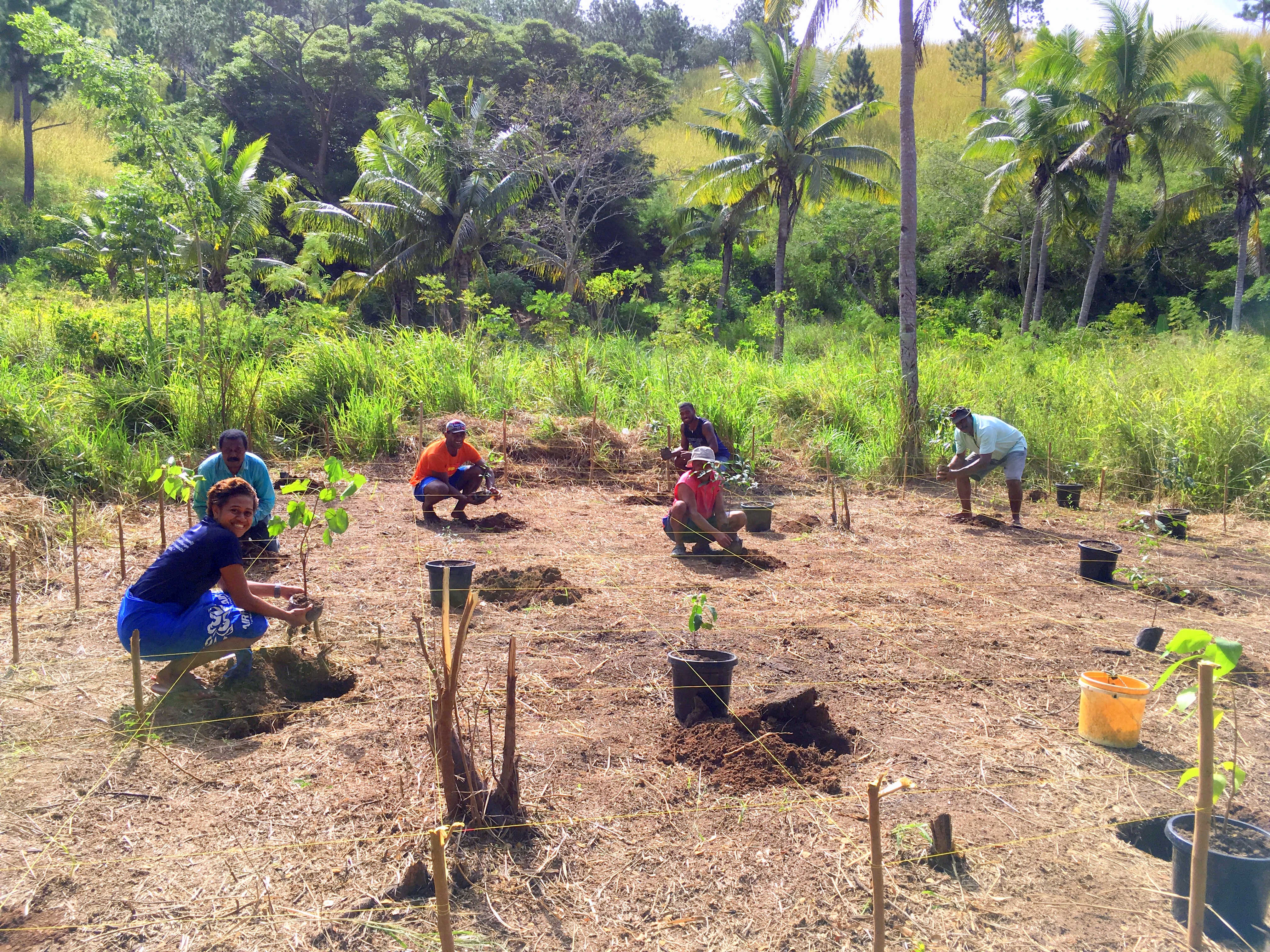Tropical Dry Forests, also known as seasonally dry tropical forests exist in the leeward dry islands of Fiji and is considered Fiji’s most endangered habitat.
The endemic Fijian crested iguana Brachylophus vitiensis, categorized as Critically Endangered on the IUCN Red List, is a dry forest indicator species and is restricted to islands with stands of this ecosystem. Over the last few decades, scarcity of the endemic crested iguana has been caused primarily due to a combination of heavily impacted habitat loss- through repeatedly occurring forest fires and the introduction of exotic predators. With all these detrimental disturbances in mind, restoration of dry forest species is one of the leading environmental initiatives that hope to address this key issue in the Mamanucas.
In a bid to preserve and replenish this endangered ecosystem in the Mamanuca group, a 10 x 10-meter plot was established in Solevu village on Wednesday 31st of May.
“We are grateful to the kind sponsorship from the US Regional Environmental Office on the project Building Community Resilience to Climate Change through Education and Natural Resource Management, we are able to establish a small scale dry forest restoration program with the communities in the Malolo District.” said Mrs Vakacola, MES Project Manager.
This is the second of its kind in the country which primarily consists of 20 dry forest trees, made up specifically of 12 species as identified by Dr. Peter Harlow, the Taronga Zoo ecologist while studying Crested Iguana diet on Yadua Taba.
Representatives from the Mamanuca Environment Society, Ahura Group Environment Manager and Solevu village Yaubula committee were all able to lend in a helping hand in planting the crested iguana demonstration plot. Ahura Group Manager, Sialisi Rasalato said: “It is always recommended to extend planting from an existing forest patch or water catchments and then move outwards”
Maika Nasilasila, Solevu village Yaubula Committee Chairman expressed his many thanks to Mr Rasalato for initiating this activity and says that the event would go down in history and is something he was proud to be a part of.
The Mamanuca Environment Society in collaboration with tourism operators continues to play a leading role in the restoration projects in the Mamanucas.
“The Mamanuca Environment Society will continue working with the Yaubula Management Support team in this long term dry forest restoration program that directly supports the critically endangered Fijian Crested Iguana and other biodiversity of Malolo Levu and community livelihood for the present and future generation.” said Mrs Vakacola.



